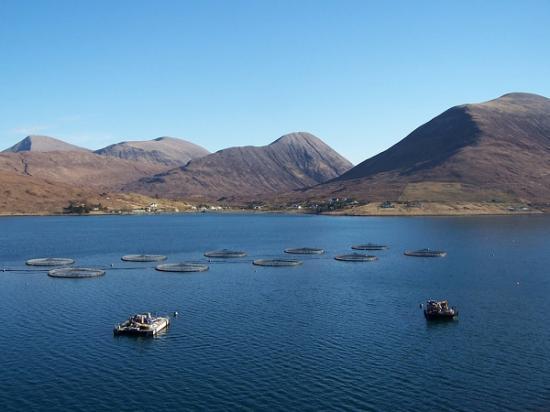Wider Economic Impacts Of Scottish Aquaculture
25th September 2020

The aquaculture sector contributed approximately £885 million to the wider Scottish economy and supported 11,700 jobs in 2018, according to new research.
The Marine Scotland commissioned report - Estimation of the Wider Economic Impacts of the Aquaculture Sector in Scotland - estimates the economic impact of aquaculture is widely felt beyond the industry. It is an important provider of employment in rural Scotland and wages are often higher than other industries, with salmon production salaries averaging £43,000.
The report also found that Scottish salmon represents the UK's largest food export by value.
The study considered the wider value of the sector to the Scottish economy and the source of these impacts. Key findings include:
aquaculture was estimated to contribute £94.1 million in taxes to the Scottish and UK Governments in 2018
the aquaculture sector spent £1.4 billion on supplies and capital investments in 2018, with the majority (76%) of these goods and services purchased from within Scotland
the majority of this impact came from salmon farming and the processing of aquaculture products. In 2018 the majority of the Gross Value Added (GVA) of aquaculture was from the salmon production subsector, followed by aquaculture processing.
Combined, these accounted for 96% of the GVA impact of the aquaculture sector
staffing costs accounted for 12% of the turnover of the aquaculture sector - £185 million in 2018. Staffing costs have risen in recent years following an increase in the number of jobs supported by the sector and the higher workforce skills
Rural Economy Secretary Fergus Ewing said:"Aquaculture is a key industry for Scotland and this report reaffirms just how vital it is. Our number one food export, it creates many thousands of highly paid, highly skilled jobs, many in our most remote and fragile communities and contributes directly to the public purse in taxes.
"Not least given the significant impact the COVID-19 pandemic and Brexit is having, the Scottish Government will continue its efforts to support the sector and its supply chain in Scotland. The sustainable growth of the aquaculture industry is imperative moving forward and is an important element of the Blue Economy model. We will work with industry to drive improvements in research and innovation to deliver further sustainable growth with all the economic benefit that brings."
Scottish Salmon Producers Organisation Director of Strategic Engagement Hamish Macdonell said:"Salmon farming not only keeps most remote communities thriving but it has a key role to play, as the country recovers from the COVID-19 pandemic.
"Producing a healthy, nutritious, high-protein food with low carbon and low water use, Scotland's salmon farmers now have the potential to lead the Green recovery which will be at the heart of our economic revival over the next few years."
In 2019, Marine Scotland commissioned BiGGAR Economics to undertake a study into the direct and wider economic impacts of the sector to Scotland to update these studies.
Estimation of the Wider Economic Impacts of the Aquaculture Sector in Scotland
PHOTO
Loch Ainort fish farm The salmon farm is operated by Marine Harvest. On the far shore of the loch, the community of Luib nestles beneath Glas Bheinn Mhòr (on the right) Beinn na Crò, Beinn Dearg Mhòr and Beinn na Caillich (on the left).
Photographer Rchard Dorrell
